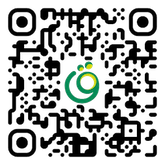Pengaruh Budaya Nasrani terhadap Diskriminasi Kelompok Queer dalam Islam
DOI:
https://doi.org/10.28918/aqwal.v4i2.2048Abstract
Discrimination against the Queer community within the Muslim community is often rooted in religious reasons. Some Muslims perceive Queer individuals as deviant, sinful, and divergent from Islamic Sharia. This is attributed to the numerous misinterpretations of the story of Prophet Lut in the Quran and hadiths, which are used to justify the discrimination against the Queer community. However, contemporary interpretations of the story of Lut are often overlooked in discussions regarding the context of why Allah sent punishment upon the people of Lut.
Two fundamental questions underlie this research. First, what is the origin of the emergence of discriminatory rhetoric against the Queer community in the story of Prophet Lut in the Quran? Second, are there other influences that support such discrimination? The author finds that interpretations of the story of Prophet Lut are not singular, and there are other factors influencing the perpetuation of discrimination against the Queer community in Islam. This is due to the influence of pre-Islamic cultural attitudes towards Queer discrimination. There are verses in the Gospel that explicitly outline punishments for homosexuality, and it is believed that there is an overlap in understanding between Islamic and pre-Islamic (in this case, Christian) cultures in the construction of the narrative of the story of Prophet Lut.
Downloads
References
Buku:
Corrigan, J., Denny, F., Jaffee, M.S., & Eire, C. (2016). Jews, Christians, Muslims: A Comparative Introduction to Monotheistic Religions. Routledge.
Haryanto, Sindung (2015). Sosiologi Agama: Dari Klasik hingga Postmodern. Yogyakarta: Ar-Ruzz Media.
Kugle, S. (2010). Homosexuality in Islam: Critical Reflection on Gay, Lesbian, and Transgender Muslims.
Simon and Schuster.
Shihab, M. Quraih (1996). Wawasan Al-Quran. Bandung: Mizan.
Supiana dan M. Karman (2002). Ulumul Quran. Bandung: Pustaka Islamika.
Umar, Nasaruddin (1999). Argumen Kesetaraan Gender: Perspektif al-Quran. Jakarta: Paramadina. Zed, Mestika (2004). Metode Penelitian Kepustakaan. Jakarta: Obor.
Jurnal/Skripsi/ Disertasi:
Fauzi, M.H. (2020). Lafadz yang Bermakna Kekejian dalam Perspektif Al-Qur’an; Analisis Semantik terhadap Lafadz Fahsyā. MAGHZA: Jurnal Ilmu Al-Qur’an dan Tafsir, 5(2).
Jahan, S.M. (2021). Quranic Lūṭ (Lot) Passages and the Juridical History of Homosexuality in Islam: A Critical Study. Disertasi. Centre for the Study of Comparative Religions and Civilizations.
Raihanah. (2015). 'Israiliyyat dan Pengaruhnya Terhadap Tafsir Alquran'. Tarbiyah Islamiyah, 5(1)
Rati. (2022). Perilaku Gay Pada Kisah Nabi Lûth dalam Perspektif Al-Qur’ân dan Relevansinya dengan Masyarakat Indonesia. Tesis. Program Studi Ilmu Al-Qur‟an dan Tafsir.
Sa’dan, M. (2022). Merebut Ruang Ibadah: Studi Kasus Konflik Penutupan Paksa Pondok Pesantren Waria Al-Fatah Yogyakarta. Tashwir: Jurnal Penelitian Agama dan Sosial Budaya, 10(02).
Video:
wadud, amina. (Pembicara). (2022, 8 April). Sharing Inclusive Perspectives on the Lut Story in the Qur’an [Video]. YouTube. https://www.youtube.com/watch?v=m-T0fMmQcT8.
Hendricks, Muhsin. (Pembicara). (2022, 21 April). Sharing Inclusive Perspectives on the Lut Story in the Qur’an [Video]. YouTube. https://www.youtube.com/watch?v=WnlqoeY8788
Suhonic, D. (Pembicara). (2022, 14 April). Sharing Inclusive Perspectives on the Lut Story [Video]. YouTube. https://www.youtube.com/watch?v=HlGSQz5aaFI.
Internet:
Nashrullah, N. (2023). Temu Aktivis LGBT: Penyelenggara Advocacy Officer ASEAN SOGIE Caucus Enggan Komentar. Republika.co.id. Diakses dari https://news.republika.co.id/berita/rxn26h320/temu-aktivis-lgbt-penyelenggara-advocac y-officer-asean-sogie-caucus-enggan-komentar pada 5 September 2023.
Khoiron, M. (2018). "Hukum Homoseks Menurut Kiai Sahal Mahfudh." Bahtsul Masail. Diakses pada 4 September 2023, dari https://islam.nu.or.id/bahtsul-masail/hukum-homoseks-menurut-kiai-sahal-mahfudh-X nB55.
Redaksi. (2020). "Hadits-Hadits Tentang Homoseksual." Asy-Syariah. Diakses pada 4 September 2023, dari https://asysyariah.com/hadits-hadits-tentang-homoseksual/.
Tuhanyesus.org. (2018). "5 Ayat Alkitab Tentang Homoseksual Dalam Kristen." Diakses pada 6 September 2023, dari https://tuhanyesus.org/ayat-alkitab-tentang-homoseksual.
Pdt. Yakub Tri Handoko. (2021). Apakah LGBTQ Melanggar Larangan di Imamat 18:22?. Reformed Exodus Community. Diakses dari https://www.rec.or.id/apakah-lgbtq-melanggar-larangan-di-imamat-1822/
HRC Foundation. What Does the Bible Say About Homosexuality?. Human Rights Campaign. Diakses dari https://www.hrc.org/resources/what-does-the-bible-say-about-homosexuality/
Naufal, I. (2023, 5 September). Tolak LGBT, Pertemuan Aktivis SE-ASEAN di Jakarta Dibatalkan. Inilah.com. Diakses dari https://www.inilah.com/tolak-lgbt-pertemuan-aktivis-se-asean-di-jakarta-dibatalkan pada tanggal 5 September 2023.
Published
How to Cite
Issue
Section
License
Copyright (c) 2023 Ersa Elfira Khaiya , Ferdiansah

This work is licensed under a Creative Commons Attribution-ShareAlike 4.0 International License.








